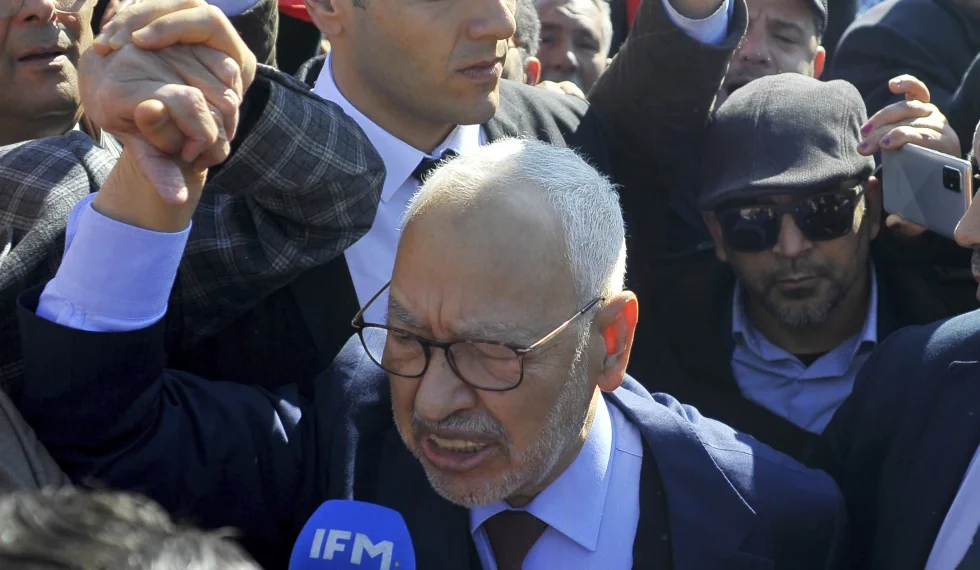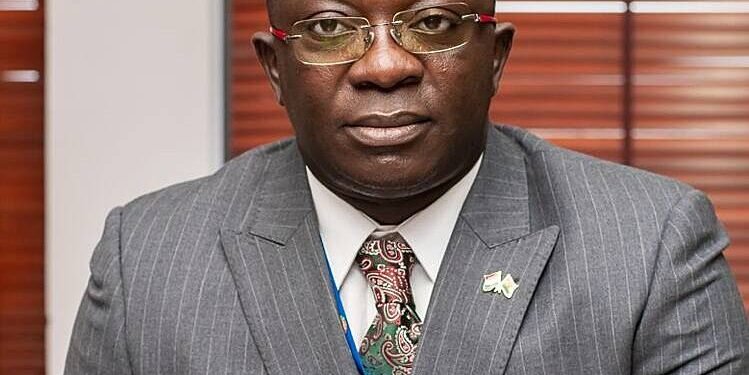A Tunisian court has sentenced prominent opposition figure Rached Ghannouchi to an additional 22 years in prison, intensifying concerns over President Kais Saied’s crackdown on dissent.
The 83-year-old leader of the Islamist movement Ennahda, who has been behind bars for nearly two years, was convicted on charges of undermining state security in a trial he refused to attend.
The sentencing, part of a broader wave of legal actions against critics of the government, has drawn sharp criticism from human rights groups and opposition parties, who argue that the judiciary is being used as a political weapon.
Ennahda denounced the proceedings, calling them “aimed at revenge, violating basic human rights and freedoms, undermining the rule of law, and blatantly politicizing the judiciary.”
Mass Sentences Raise Alarm
The National Salvation Front, a coalition of opposition parties including Ennahda, condemned the court’s decisions, revealing that a total of 760 years in prison have been handed down to bloggers, politicians, and former government officials.
The coalition described the sentencing spree as “one of the darkest periods” in Tunisia’s judicial history.
“This particular chamber is becoming a specialized tool for issuing harsh sentences against politicians,” stated Ahmed Nejib Chebbi, a leader within the National Salvation Front.
The legal actions stem from a 2019 case involving a media company accused of providing services to multiple candidates, including Ennahda, during that year’s presidential elections.
Prosecutors charged those involved with defamation, spreading falsehoods, money laundering, undermining state security, and illegally accepting foreign funds. Ennahda, however, has denied any association with the company and claims the case is being weaponized against the opposition.
Journalists have not been spared in the government’s sweeping repression. Chadha Haj Mubarak, a well-known journalist, was sentenced to five years in prison as part of the same case. The National Syndicate of Tunisian Journalists swiftly condemned the ruling, calling for her immediate release.
In a statement, Mubarak’s lawyer, Souhail Medimegh, argued that his client was “being charged purely for her journalism,” highlighting fears that press freedoms in Tunisia are rapidly deteriorating under Saied’s rule.
Saied’s Power Grab Fuels Concerns
Tunisia, once hailed as a democratic success story following the Arab Spring, has seen a steady decline in political freedoms since President Saied took office in 2019. After securing a second term last October in an uncontested election — while leading opponents, including Ghannouchi, remained imprisoned — Saied has systematically eroded democratic institutions.

He has suspended parliament, rewritten the constitution to consolidate power, and imprisoned political opponents, activists, and journalists critical of his rule.
Human rights groups warn that his administration is dismantling the hard-fought democratic gains Tunisia made in the years following the 2011 revolution that ousted dictator Zine El Abidine Ben Ali.
“These rulings bring Tunisia back to a period the people sought to leave behind through their revolution,” Ennahda stated, underscoring growing fears that the country is sliding back into authoritarianism.
In addition to those imprisoned within Tunisia, the court issued severe sentences in absentia against several opposition figures who have fled the country.
Former Prime Minister Hichem Mechichi was sentenced to 35 years in prison on charges similar to those levied against Ghannouchi.
As Tunisia’s crackdown on opposition intensifies, the international community watches with growing concern. Analysts warn that Saied’s continued suppression of dissent risks plunging the country into deeper political and economic turmoil, undoing more than a decade of democratic progress.
READ ALSO: IMF Stands Firm on Global Stability Amid Shifting U.S. Policies























